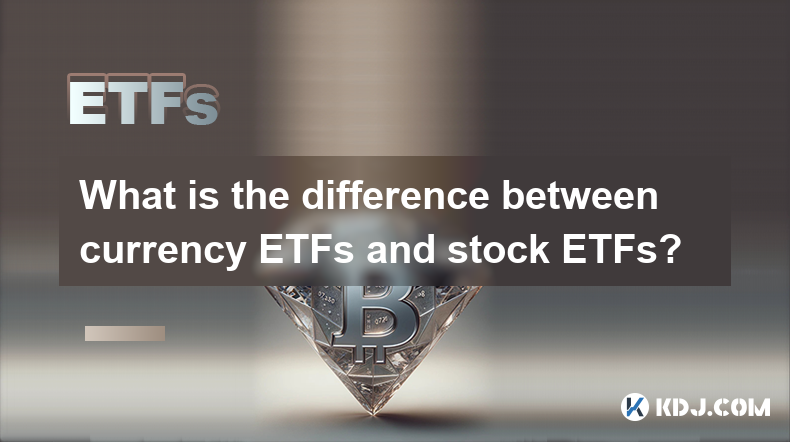-
 Bitcoin
Bitcoin $84,533.5946
-0.39% -
 Ethereum
Ethereum $1,579.4500
-1.34% -
 Tether USDt
Tether USDt $1.0000
0.02% -
 XRP
XRP $2.0576
-0.68% -
 BNB
BNB $588.6240
-0.03% -
 Solana
Solana $136.5689
-1.00% -
 USDC
USDC $1.0000
0.01% -
 TRON
TRON $0.2459
2.00% -
 Dogecoin
Dogecoin $0.1537
-1.97% -
 Cardano
Cardano $0.6144
-1.04% -
 Chainlink
Chainlink $13.1668
3.27% -
 UNUS SED LEO
UNUS SED LEO $9.3283
0.18% -
 Avalanche
Avalanche $19.4724
-1.07% -
 Toncoin
Toncoin $3.0009
1.64% -
 Stellar
Stellar $0.2420
-1.06% -
 Shiba Inu
Shiba Inu $0.0...01249
2.75% -
 Hedera
Hedera $0.1657
0.44% -
 Sui
Sui $2.1062
-1.06% -
 Bitcoin Cash
Bitcoin Cash $333.2886
-0.13% -
 Polkadot
Polkadot $3.9053
4.73% -
 Hyperliquid
Hyperliquid $17.5243
-1.44% -
 Litecoin
Litecoin $76.5313
1.75% -
 Dai
Dai $1.0000
0.01% -
 Bitget Token
Bitget Token $4.4002
-2.43% -
 Ethena USDe
Ethena USDe $0.9993
0.02% -
 Pi
Pi $0.6305
-2.54% -
 Monero
Monero $215.9043
1.33% -
 Uniswap
Uniswap $5.2485
0.07% -
 Pepe
Pepe $0.0...07672
4.72% -
 Aptos
Aptos $5.0535
4.20%
What is the difference between currency ETFs and stock ETFs?
Currency ETFs, unlike stock ETFs, track the value of specific currencies against a reference currency, offering lower risk and better diversification.
Jan 05, 2025 at 12:16 pm

Key Differences between Currency ETFs and Stock ETFs
- Underlying Assets
- Performance Indicators
- Investment Goals
- Risk Profile
- Liquidity
- Regulations and Taxation
1. Underlying Assets
Exchange-traded funds (ETFs) are baskets of securities that track a particular index, sector, or asset class. Currency ETFs track the performance of a specific currency, such as the US dollar (USD), euro (EUR), Japanese yen (JPY), or Swiss franc (CHF). On the other hand, stock ETFs track the performance of a stock market index, such as the S&P 500, NASDAQ 100, or Dow Jones Industrial Average.
2. Performance Indicators
Currency ETFs typically measure performance based on the fluctuations in the value of the underlying currency against a reference currency, such as the US dollar. Stock ETFs, on the other hand, measure performance based on the price movements of the stocks in the underlying index.
3. Investment Goals
Investors may use currency ETFs for various goals, including:
- Hedging against currency risk
- Diversifying a portfolio
- Speculating on currency movements
Stock ETFs, on the other hand, are commonly used to:
- Gain exposure to a particular industry or sector
- Invest in a broader market index
- Track the performance of a specific company
4. Risk Profile
Currency ETFs generally carry less risk than stock ETFs due to the inherent stability of currencies compared to stock prices. However, currency ETFs can still be subject to volatility due to economic and geopolitical factors. Stock ETFs, on the other hand, can experience significant fluctuations in value due to company performance, market conditions, and investor sentiment.
5. Liquidity
The liquidity of an ETF refers to its ability to be bought or sold quickly without significantly impacting its price. Currency ETFs tend to have higher liquidity than stock ETFs due to the ease of trading currencies in the global foreign exchange market. Stock ETFs may have varying liquidity levels depending on the size and popularity of the underlying index.
6. Regulations and Taxation
Currency ETFs and stock ETFs are subject to different regulatory and tax laws depending on the jurisdiction in which they are traded. The tax treatment of ETFs varies across countries, with some countries offering preferential tax rates for currency ETFs.
FAQs
- What are the advantages of currency ETFs over stock ETFs?
They offer lower risk, better diversification, and potentially higher liquidity. - What are the disadvantages of currency ETFs compared to stock ETFs?
They have lower growth potential and may not be suitable for long-term investment goals. - Can currency ETFs be used as a hedge against inflation?
Yes, some currency ETFs, such as those tracking the Japanese yen or Swiss franc, are known for their stability during inflationary periods. - How do I choose the right currency ETF?
Consider your investment goals, risk tolerance, and the specific currencies you want to diversify your portfolio with. - Where can I buy and sell currency ETFs?
Currency ETFs are traded on major stock exchanges, and you can buy them through brokerage firms or investment platforms.
Disclaimer:info@kdj.com
The information provided is not trading advice. kdj.com does not assume any responsibility for any investments made based on the information provided in this article. Cryptocurrencies are highly volatile and it is highly recommended that you invest with caution after thorough research!
If you believe that the content used on this website infringes your copyright, please contact us immediately (info@kdj.com) and we will delete it promptly.
- Pi Network (PI) Price Prediction: It Could Get Ugly
- 2025-04-21 00:25:13
- Dogecoin (DOGE) Holders Celebrate Doge Day on April 20, 2025, as the Community Awaits a Possible DOGE ETF
- 2025-04-21 00:25:13
- A renewed wave of optimism is spreading through the Dogecoin market
- 2025-04-21 00:20:13
- Solana (SOL) Price Wedged Between Two Crucial Levels, Breakout or Breakdown?
- 2025-04-21 00:20:13
- Bitcoin BTC/USD, Ethereum ETH/USD, XRP XRP/USD, and Dogecoin DOGE/USD Moved Sideways Amid Tariff Uncertainties
- 2025-04-21 00:15:12
- The Solana Price Was One of the Few Highlights
- 2025-04-21 00:15:12
Related knowledge

What role does SEC play in Bitcoin ETF approval?
Feb 25,2025 at 06:48am
Key Points:SEC's Role in Bitcoin ETF Approval ProcessHistorical Efforts to Establish a Bitcoin ETFSEC's Criteria for Bitcoin ETF ApprovalPotential Impact of a Bitcoin ETF on the Cryptocurrency MarketTimeline and Outlook for Bitcoin ETF ApprovalArticle:SEC Play in Bitcoin ETF ApprovalThe United States Securities and Exchange Commission (SEC) plays a crit...

Who is eligible to issue Bitcoin ETFs?
Feb 25,2025 at 11:13am
Key Points:Only regulated financial institutions with the necessary expertise and infrastructure are eligible to issue Bitcoin ETFs.The Securities and Exchange Commission (SEC) has not yet approved any spot Bitcoin ETFs, but has approved several futures-based ETFs.Applicants must meet stringent requirements, including having a strong track record and su...

What impact does Bitcoin ETF have on the market?
Feb 25,2025 at 11:37am
Key Points:Introduction to Bitcoin ETFs and their role in the cryptocurrency marketHistorical development and performance of Bitcoin ETFsPotential benefits of Bitcoin ETFs for investors and the marketRisks and limitations associated with Bitcoin ETFsRegulatory considerations and their impact on Bitcoin ETFsArticle:Introduction to Bitcoin ETFsBitcoin exc...

Which investors are Bitcoin ETFs suitable for?
Feb 27,2025 at 04:01pm
Key Points:Understanding Bitcoin ETFsBenefits of Bitcoin ETFsSuitability of Bitcoin ETFs for Different InvestorsAssessing Risk Tolerance and Investment GoalsConsidering Short-Term and Long-Term StrategiesExamining Tax ImplicationsSeeking Professional AdviceUnderstanding Bitcoin ETFsBitcoin exchange-traded funds (ETFs) are investment vehicles that track ...

What is the administrative expenses of Bitcoin ETFs?
Feb 26,2025 at 12:24am
Key Points:Administrative expenses are a crucial factor to consider when evaluating Bitcoin ETFs.These expenses can significantly impact the performance of the fund and ultimately the investor's returns.Understanding the various components of administrative expenses is essential for informed decision-making.Comparing administrative expenses across diffe...

What are the fees for purchasing Bitcoin ETFs?
Feb 27,2025 at 07:13pm
Key Points:Bitcoin exchange-traded funds (ETFs) are a cost-effective and regulated way to gain exposure to Bitcoin.Fees associated with Bitcoin ETF purchases vary depending on the platform, trading volume, and account type.It is essential to evaluate fee structures carefully to optimize investment returns.Fees Associated with Purchasing Bitcoin ETFs1. B...

What role does SEC play in Bitcoin ETF approval?
Feb 25,2025 at 06:48am
Key Points:SEC's Role in Bitcoin ETF Approval ProcessHistorical Efforts to Establish a Bitcoin ETFSEC's Criteria for Bitcoin ETF ApprovalPotential Impact of a Bitcoin ETF on the Cryptocurrency MarketTimeline and Outlook for Bitcoin ETF ApprovalArticle:SEC Play in Bitcoin ETF ApprovalThe United States Securities and Exchange Commission (SEC) plays a crit...

Who is eligible to issue Bitcoin ETFs?
Feb 25,2025 at 11:13am
Key Points:Only regulated financial institutions with the necessary expertise and infrastructure are eligible to issue Bitcoin ETFs.The Securities and Exchange Commission (SEC) has not yet approved any spot Bitcoin ETFs, but has approved several futures-based ETFs.Applicants must meet stringent requirements, including having a strong track record and su...

What impact does Bitcoin ETF have on the market?
Feb 25,2025 at 11:37am
Key Points:Introduction to Bitcoin ETFs and their role in the cryptocurrency marketHistorical development and performance of Bitcoin ETFsPotential benefits of Bitcoin ETFs for investors and the marketRisks and limitations associated with Bitcoin ETFsRegulatory considerations and their impact on Bitcoin ETFsArticle:Introduction to Bitcoin ETFsBitcoin exc...

Which investors are Bitcoin ETFs suitable for?
Feb 27,2025 at 04:01pm
Key Points:Understanding Bitcoin ETFsBenefits of Bitcoin ETFsSuitability of Bitcoin ETFs for Different InvestorsAssessing Risk Tolerance and Investment GoalsConsidering Short-Term and Long-Term StrategiesExamining Tax ImplicationsSeeking Professional AdviceUnderstanding Bitcoin ETFsBitcoin exchange-traded funds (ETFs) are investment vehicles that track ...

What is the administrative expenses of Bitcoin ETFs?
Feb 26,2025 at 12:24am
Key Points:Administrative expenses are a crucial factor to consider when evaluating Bitcoin ETFs.These expenses can significantly impact the performance of the fund and ultimately the investor's returns.Understanding the various components of administrative expenses is essential for informed decision-making.Comparing administrative expenses across diffe...

What are the fees for purchasing Bitcoin ETFs?
Feb 27,2025 at 07:13pm
Key Points:Bitcoin exchange-traded funds (ETFs) are a cost-effective and regulated way to gain exposure to Bitcoin.Fees associated with Bitcoin ETF purchases vary depending on the platform, trading volume, and account type.It is essential to evaluate fee structures carefully to optimize investment returns.Fees Associated with Purchasing Bitcoin ETFs1. B...
See all articles





















































































